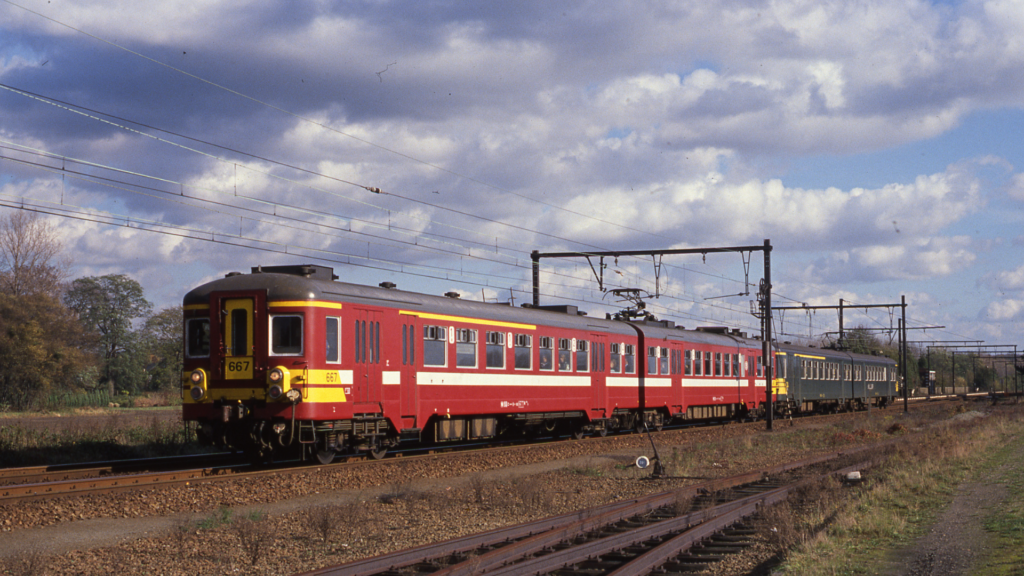Belgian train operator SNCB is removing its oldest rolling train model from circulation, sending the iconic AM double carriages to a well deserved retirement.
Following the introduction of a new transport plan, SNCB will remove the AM 66-79 double multiple units from circulation after more than half a century of operation.
Most SNCB passengers will at some point have had the opportunity to sit on the typical two or three seater benches, arranged facing the other, on board the AM 66-79 railcars.
This type of train was built between 1966 and 1980 and was modernised between 1999 and 2007. The last cars will leave circulation at the end of this week.
'Iconic' railcars
"These railcars have been part of the railway landscape for many years and have transported entire generations of passengers to work, school, the coast and the Ardennes," said SNCB train driver Hans Van de Vyver.
"Many train drivers, like me, learned their trade with this equipment. While the withdrawal of these iconic railcars closes an important chapter, the arrival of the new M7 double-decker cars opens a new, already exciting one! Because it is precisely the variety of rolling stock and techniques that makes the job of train driver so exciting," he said.
Most of the AM 66-79s had already been gradually withdrawn from service in recent years. The AM doubles were replaced, among others, by the more recent Desiro triple multiple units. However, a few of them remained in service on certain L and S routes around Tournai, Charleroi and Mons.
Each AM 66-79 railcar had 180 seats and could reach a maximum speed of 140 km/hour. It could easily be coupled with other railcars to increase the number of seats. Thanks to its versatility, this train was also used for cross-border traffic (for example, between Liège in France and Aachen in Germany, where the AMs were replaced at the end of 2023).
Recycling plans
The AM 66-79 railcars weigh 104 tonnes. After being withdrawn from circulation, some 90% of the raw materials will be recycled and given a new lease of life.
One of the cars will be preserved as part of the collections of Train World, the SNCB museum.
SNCB is investing heavily in the modernisation of its fleet. Half of its fleet will have been renewed by 2032, in particular thanks to the ongoing commissioning of the M7 double-decker coaches. SNCB has also ordered new locomotives which will be delivered in the coming years and is planning to purchase new multiple units.

